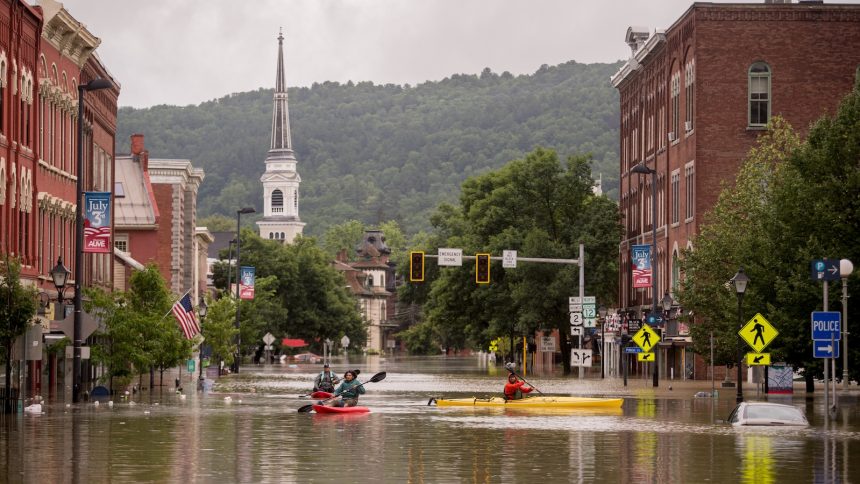In a groundbreaking move, the state of Vermont passed the Climate Superfund Act in response to record rain storms that devastated the state last July. This act aims to hold Big Oil accountable for the environmental damages caused by their products. Despite immense support in the legislature, the bill now awaits the governor’s signature. Should he choose to veto, the legislature is prepared for an override with strong bipartisan backing. Once enacted, Vermont will be the first state to make Big Oil pay for climate-related disasters.
Ben Edgerly Walsh, who led the charge for the bill, emphasized the urgent need for action given recent climate events that have impacted Vermont. The legislation, while likely to face legal challenges, establishes a Climate Superfund that will require major oil companies to contribute based on their emissions over a specific period. These funds will go towards aiding disaster recovery and strengthening the state’s infrastructure.
The bill sets out a framework for determining the financial obligations of big oil companies, leveraging attribution science to calculate their contributions. Vermont treasurer will use the established social cost of carbon to determine the payments owed by fossil fuel companies. This money is crucial for a state already facing significant costs from climate impacts, as highlighted by recent reports.
While the legislation targets companies with substantial greenhouse gas emissions, it also aims to ensure accountability for those who have had a significant impact on the environment since 1995. Legal experts consulted on the bill believe it is robust enough to withstand challenges, given its alignment with precedents set by similar laws and the conservative approach taken in determining financial responsibilities.
If successful, Vermont will lead the nation in holding Big Oil accountable for the climate crisis, setting a precedent for other states to follow suit. While similar bills have faced obstacles in other states, Vermont’s proactive approach showcases a commitment to addressing climate challenges and making polluters pay for their impacts.

This move by Vermont marks a significant step towards holding big oil companies accountable for their contributions to climate change. As other states consider similar actions, the nation is faced with the challenge of ensuring that polluters bear the costs of their actions for a more sustainable future.






